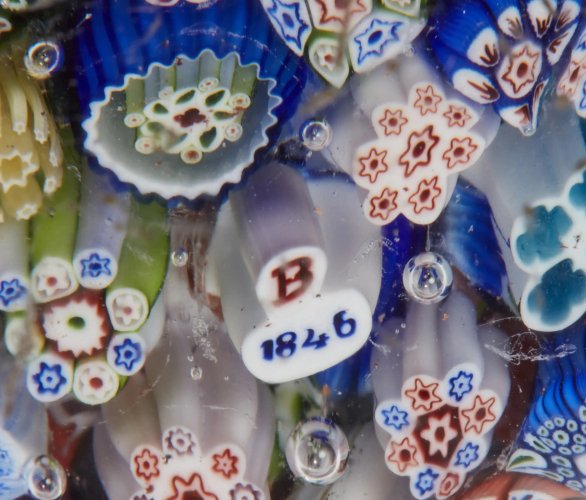Baccarat is a French manufacturer of fine crystal. The Baccarat company is one of France’s oldest and most established glass-working firms and is still active today.
The firm was founded in the 1760s by the Bishop of Metz who wanted to encourage industry in the little village of Baccarat. The company’s early production consisted of windows, mirrors, and tableware items. With time it broadened significantly and from 1816 on, it started to include fine crystal, which was produced using the techniques developed by the English glassmakers of the late 18th century. At this point, the company was renamed Compagnie des Cristalleries de Baccarat (in its early years it had operated under many different names, including Verreries de Sante-Anne).
In 1828 the Bourbon monarch Charles X visited the factory; impressed by the works, he commissioned an extensive glass dinner service for the Tuileries Palace. After this royal commission, more French monarchs, emperors, and heads of state commissioned glassware from the Baccarat factory, including King Louis-Philippe and Napoleon III. In the following years Baccarat’s fame increased, and the firm also competed at a number of exhibitions, achieving many medals for its high standards and beautiful designs.
Baccarat’s crystal paperweights are some of its most recognizable products, which were inspired by those created in Venice. The firm produced them in several designs, particularly the millefiori pattern. Other popular objects created by the factory include drinking glasses, decanters, bottles, and impressive chandeliers.
Initially Baccarat did not have a defined system for marking its pieces. Some of the early paperweights made in the 1840s were stamped with the letter ‘B’ followed by the year of production. Only in the 1860s, Baccarat started to attach a paper label to its products: those objects presenting their original paper label are now quite rare to find. In the 1930s Baccarat began to engrave its mark directly onto the glass. Modern pieces contain a laser-etched mark which reads ‘Baccarat’.
